In today’s world, sustainability is no longer just a trend—it’s a necessity. More homeowners are looking for eco-friendly solutions when designing their homes, particularly when it comes to kitchens and cabinets. If you’re considering custom furniture for your kitchen or cabinets, choosing eco-friendly materials and technologies can make a significant difference for both your health and the environment. In this article, we’ll explore the benefits of sustainable materials, the best eco-friendly options available, and the innovative technologies that are transforming furniture manufacturing.
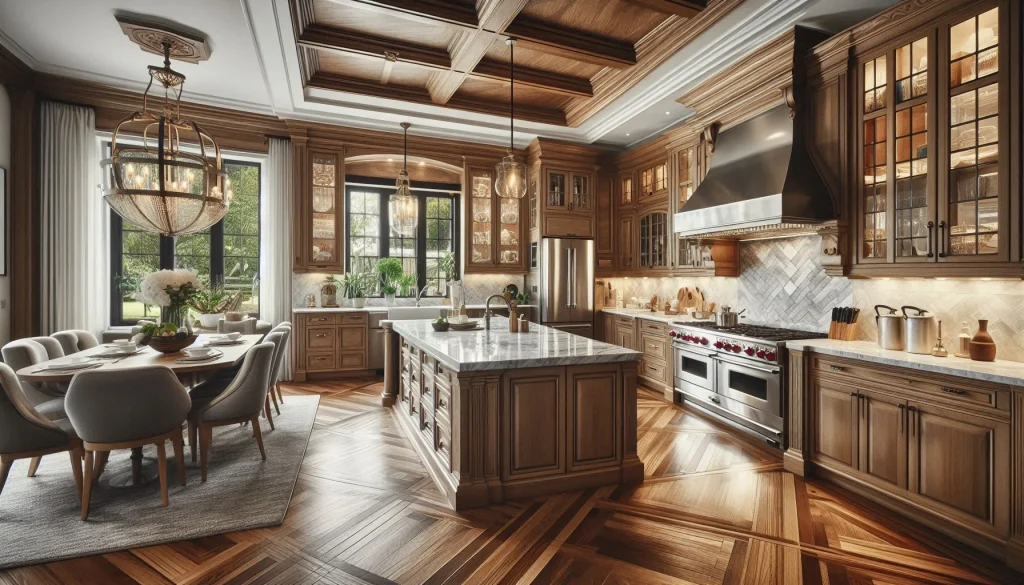
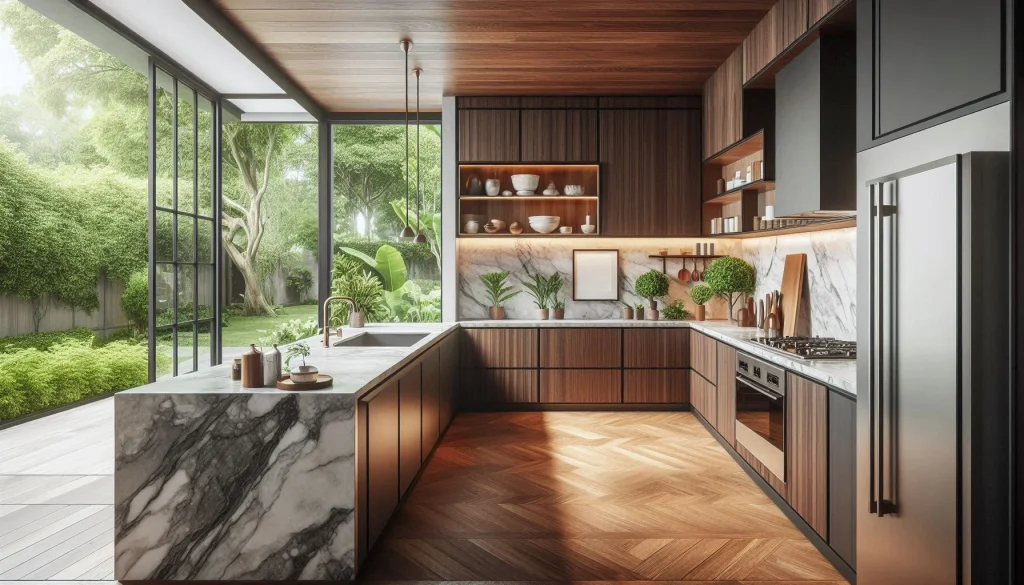
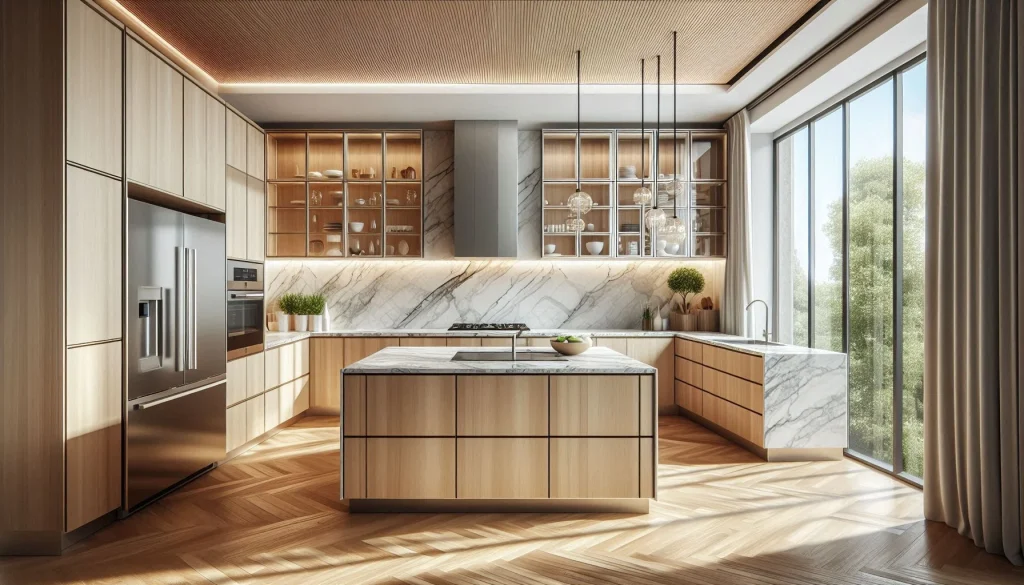
Why Choose Eco-Friendly Materials?
- Healthier Indoor Air Quality
Many traditional furniture materials and finishes release harmful chemicals, such as formaldehyde, that can affect indoor air quality. Eco-friendly materials, on the other hand, are typically free from volatile organic compounds (VOCs) and other toxins. This means fewer harmful emissions in your home, leading to a healthier living environment for you and your family. - Reduced Environmental Impact
Using sustainable materials helps conserve natural resources and reduces pollution and waste. Eco-friendly manufacturing practices often emphasize minimal waste production, energy efficiency, and responsible sourcing of materials, leading to a smaller carbon footprint. - Durability and Longevity
Many eco-friendly materials are incredibly durable, which means your custom kitchen or cabinets will stand the test of time. This reduces the need for frequent replacements, further minimizing waste and resource consumption.
Sustainable Materials for Kitchens and Cabinets
- Reclaimed Wood
Reclaimed wood is a highly popular eco-friendly material used in custom kitchen and cabinet designs. Sourced from old buildings, barns, and other structures, reclaimed wood gives new life to materials that would otherwise be discarded. It provides a rustic, unique look and reduces the need for cutting down new trees. - Bamboo
Bamboo is a rapidly renewable resource that grows faster than traditional hardwoods. It is also incredibly strong and versatile, making it an excellent choice for eco-friendly kitchen cabinets. Bamboo has a clean, modern aesthetic that suits many design styles. - Recycled Metal and Glass
Using recycled materials such as metal and glass in kitchen designs is another great way to reduce waste and promote sustainability. These materials can be used for cabinet hardware, countertops, or decorative accents, adding a sleek and industrial feel to your space. - Formaldehyde-Free Plywood
Traditional plywood often contains formaldehyde, which is harmful to both health and the environment. Formaldehyde-free plywood is made using non-toxic adhesives, making it a much safer option for eco-conscious homeowners. It offers the same strength and versatility without the negative health impacts. - Low-VOC Finishes and Paints
The finishes and paints used in your kitchen or cabinets can significantly impact indoor air quality. Opt for low-VOC (volatile organic compounds) or VOC-free finishes, which release fewer harmful chemicals into the air, creating a safer, non-toxic living space.
Technologies Driving Sustainable Furniture Manufacturing
- Energy-Efficient Manufacturing
Eco-friendly manufacturers are adopting energy-efficient production processes. By using solar or wind energy and optimizing machinery for minimal energy consumption, these companies reduce their carbon footprint and contribute to a cleaner environment. - Water-Based Adhesives and Finishes
Many eco-conscious manufacturers are moving away from solvent-based adhesives and finishes in favor of water-based alternatives. These new technologies reduce the release of harmful chemicals during the production process and create safer products for consumers. - 3D Printing and Waste Reduction
The use of 3D printing technology in furniture manufacturing is revolutionizing sustainability. This technology allows manufacturers to create custom designs with minimal waste by precisely controlling the amount of material used. It also reduces the need for large production facilities, making the process more energy-efficient. - Circular Manufacturing Practices
Circular manufacturing is a sustainable approach where products are designed to be easily disassembled, repaired, and recycled at the end of their life. This reduces waste and extends the lifespan of materials, ensuring that fewer resources are consumed over time.
The Benefits of Eco-Friendly Custom Kitchens and Cabinets
- Improved Well-Being
Reducing your exposure to harmful chemicals in your home promotes better health and well-being. An eco-friendly kitchen not only looks beautiful but also supports a cleaner, healthier lifestyle. - Support for Ethical Practices
By choosing sustainable materials, you’re supporting companies that prioritize ethical and environmentally responsible practices. This encourages more businesses to adopt eco-friendly methods and helps push the industry toward greater sustainability. - Long-Term Savings
While some eco-friendly materials may have a higher upfront cost, their durability often means fewer repairs and replacements in the long run. This can lead to significant savings over time, making sustainable choices a smart financial investment. - Positive Environmental Impact
Opting for eco-friendly materials and technologies reduces your carbon footprint, helping to preserve natural resources and mitigate the impacts of climate change. By making conscious choices, you’re contributing to a more sustainable planet for future generations.
Conclusion
As the demand for sustainable living continues to grow, incorporating eco-friendly materials and technologies into custom kitchen and cabinet designs is a smart, responsible choice. Not only do these materials promote better health and environmental stewardship, but they also offer long-lasting durability and aesthetic appeal. Whether you’re planning a complete kitchen renovation or simply looking for eco-conscious updates, investing in sustainable solutions will benefit both your home and the planet.



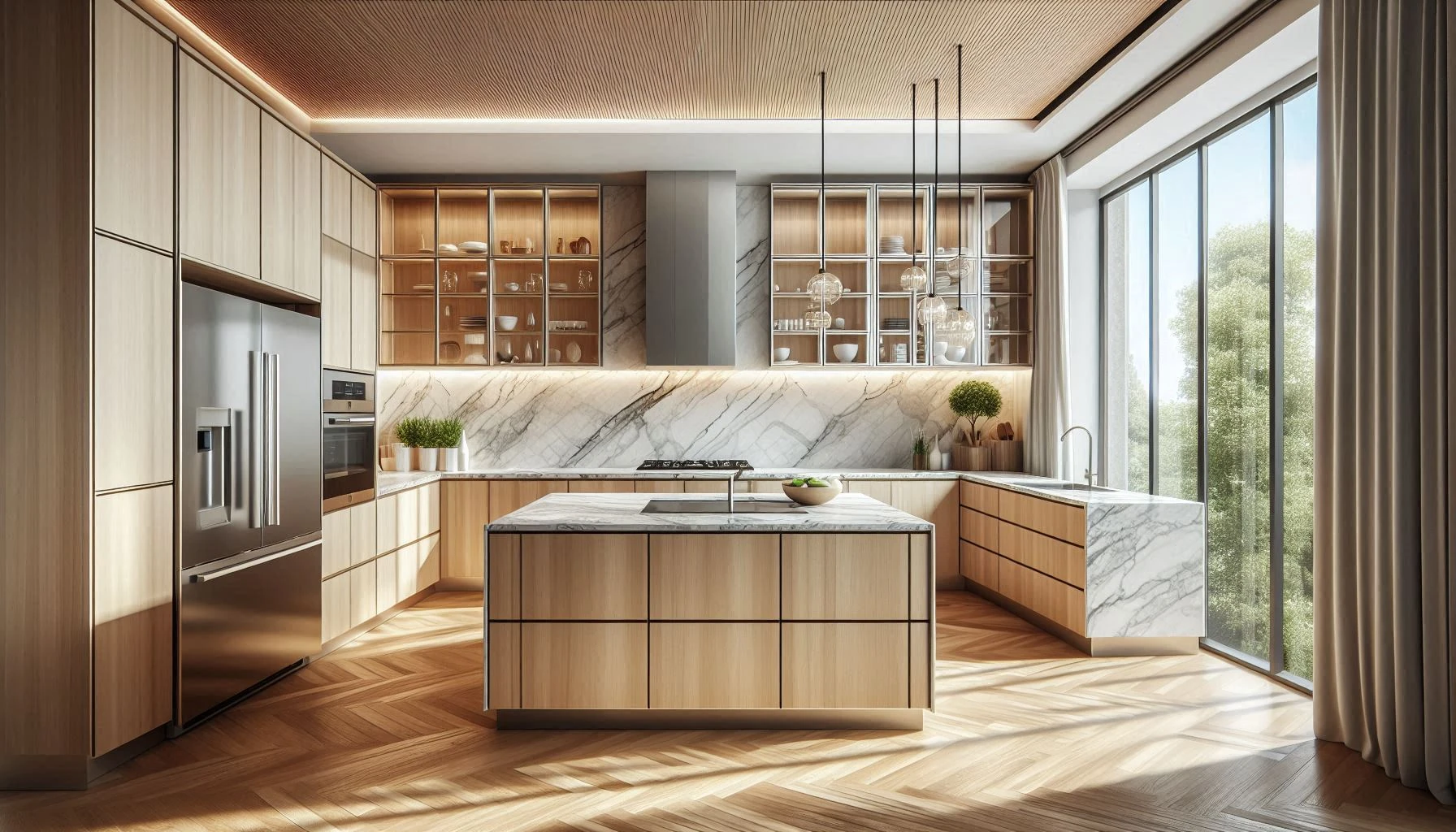
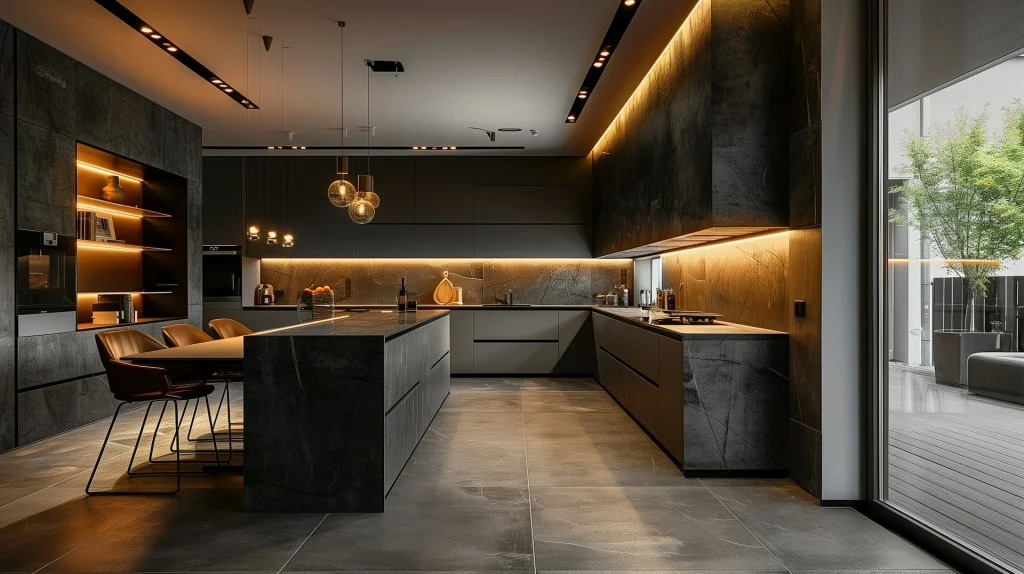
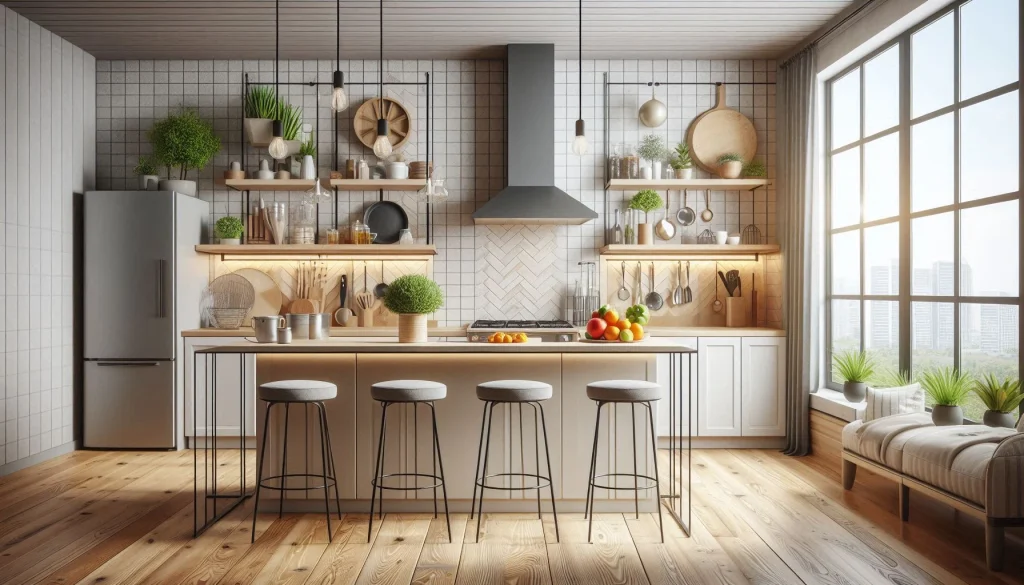
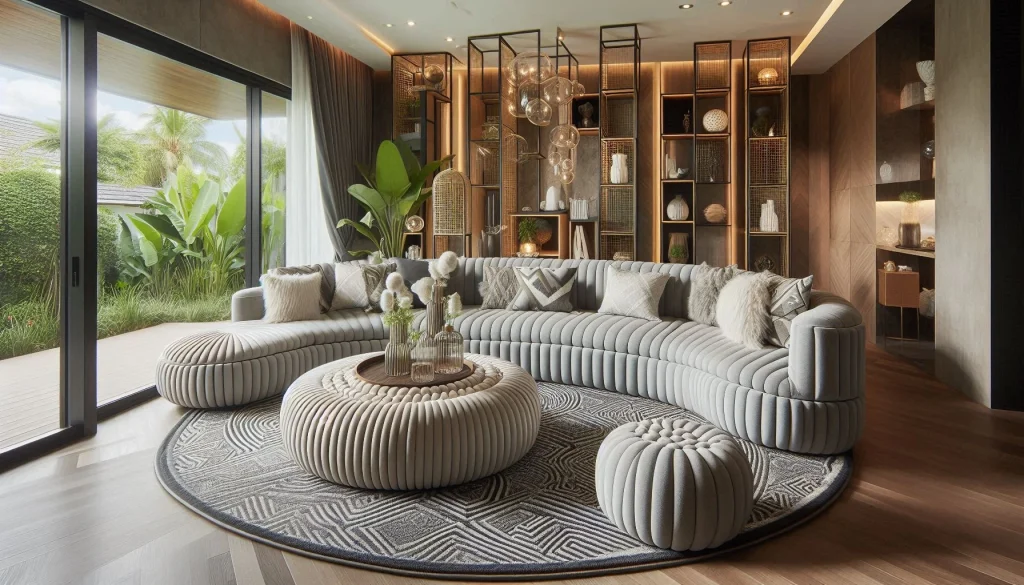
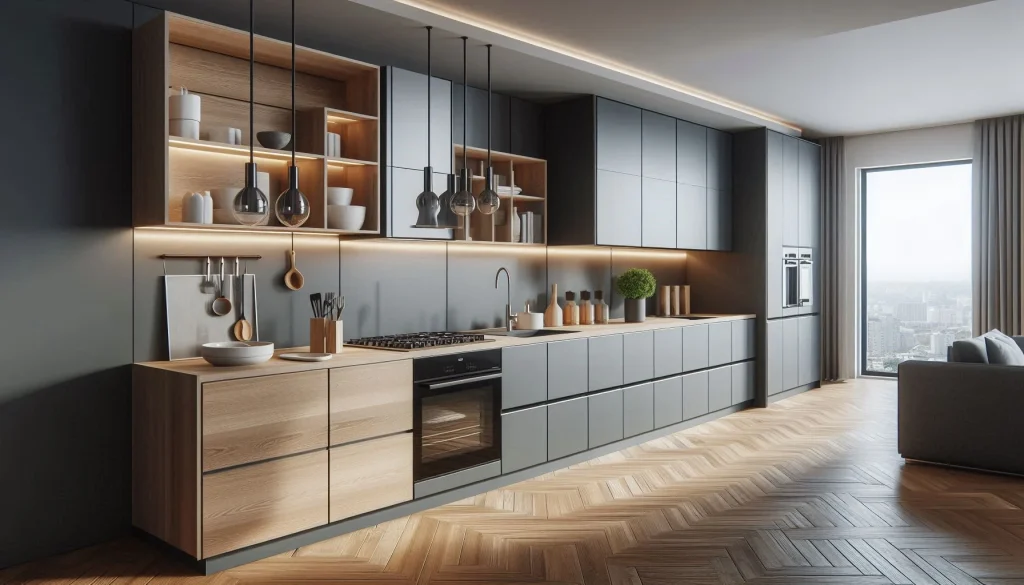
 Furniture manufacturing
Furniture manufacturing Furniture renovation
Furniture renovation Room decoration
Room decoration